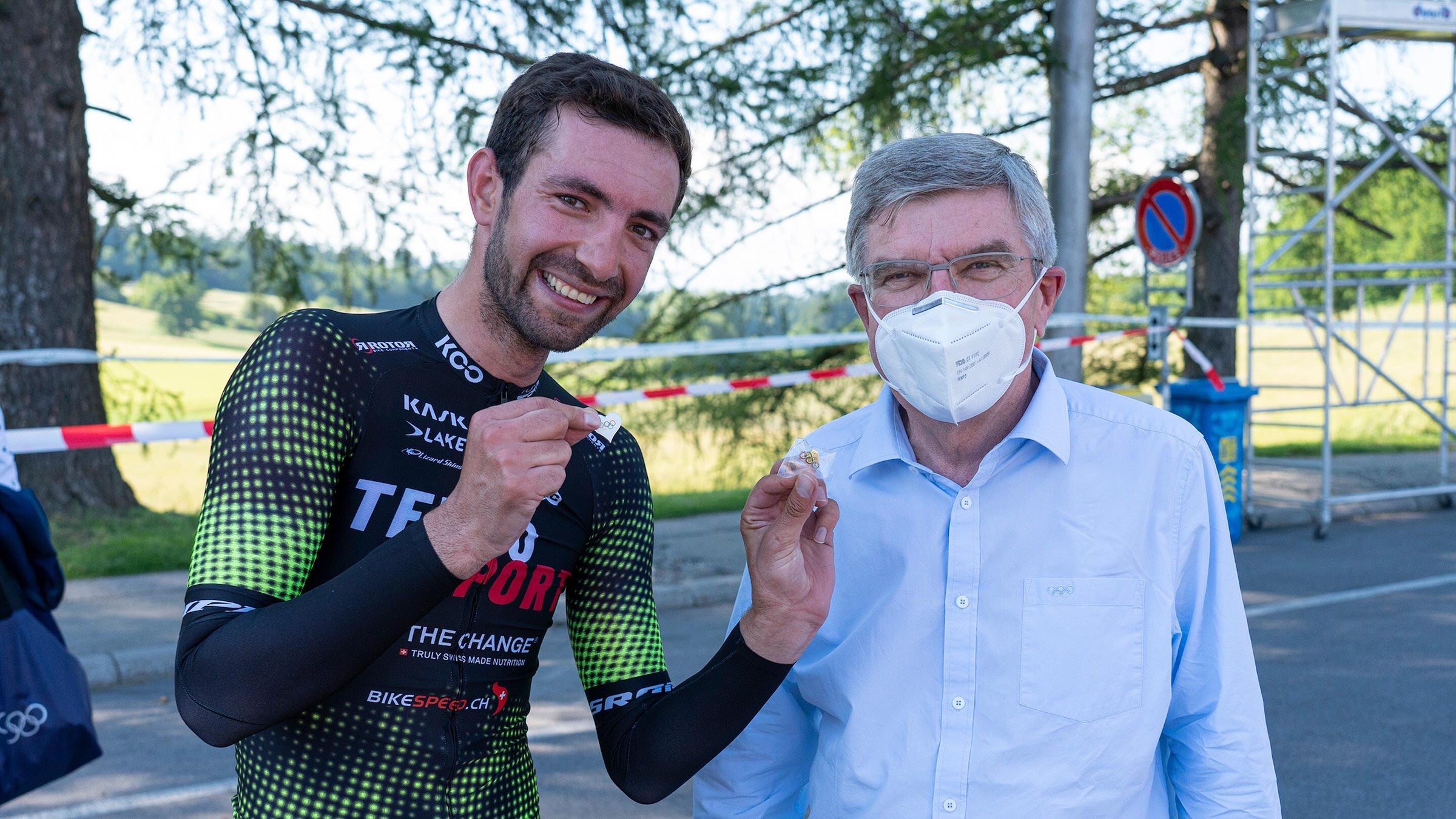2021 Olympics: Meet the two road cyclists of the Refugee Olympic Team

The President of the International Olympic Committee (IOC), Thomas Bach supporting Badreddin Wais at the 2021 Swiss time trial national championships in Lausanne this year. (Photo: IOC)
Every Olympian has a story — but none are perhaps as poignant as those of the refugees.
According to the United Nations Refugee Agency, there are currently over 82 million refugees in the world. For those who have been forced to leave their country in order to escape war, persecution, or natural disaster, the Olympics represent a distant and distressing dream.
In 2015, the International Olympic Committee (IOC) debuted the Refugee Olympic Team ahead of the Rio Games. Ten refugee athletes from around the world competed in Rio under the Olympic flag.
This year, 29 athletes competing across 12 sports and from 13 host national olympic committees will represent Tokyo’s Refugee Olympic Team. They were selected from among the refugee athletes currently supported by the IOC through the Olympic Scholarships for Refugee Athletes program.
Masomah Ali Zada and Ahmad Badreddin Wais will both represent the team in cycling.
Masomah Ali Zada
For 25-year-old Masomah Ali Zada, cycling formed part of the impetus to flee from the difficulties of living in Afghanistan.
However, Afghanistan’s national team was a far cry from what the majority of the international cycling community is used to. In fact, a 2016, a documentary entitled ‘Les Petites Reines de Kaboul’ (“The Little Queens of Kabul”) showed the team training in the Afghan capital despite being threatened in countless ways by people who believe women cycling is immoral.
In one scene, Ali Zada is deliberately hit by a car, as well as taunted and threatened afterward.
When retired French attorney Patrick Communal saw the film, he knew he wanted to help. He reached out to the Afghan Cycling Federation to get in touch with Ali Zada and her sister. Eventually, he was able to help the girls and their families seek asylum in France in 2017. Communal’s son Thierry became their coach.
Now, Ali Zada and her sister live in Lille, where they are enrolled at the University of Lille as part of a special program for refugees.
Ahmad Badreddin Wais
In 2014, Badreddin Wais left Syria on an arduous journey that would take him by land to Beirut, then to Turkey by sea. There, he was reunited with his family. After that, he took another ship from Istanbul to Athens, then flew to Switzerland. At first, he settled in Lausanne with a fellow Syrian; when he registered as a refugee, the then-23-year-old was sent to the German-speaking area of Schwyz.
Badreddin Wais has said that his journey from Syria to Switzerland was so debilitating that he took three years away from major cycling competitions. He returned to cycling at the 2017 World Championships in Bergen, Norway, where he was 60th in the time trial.